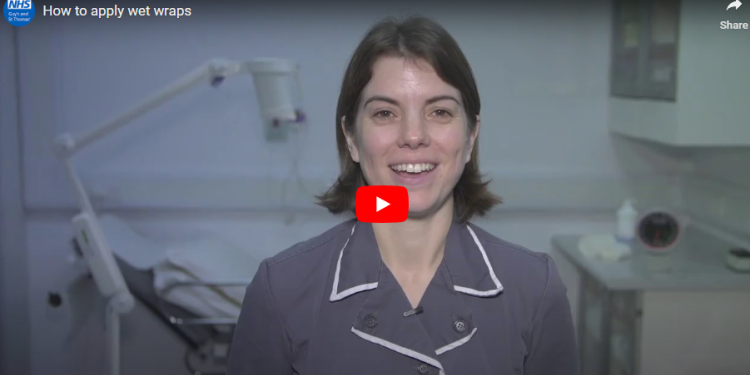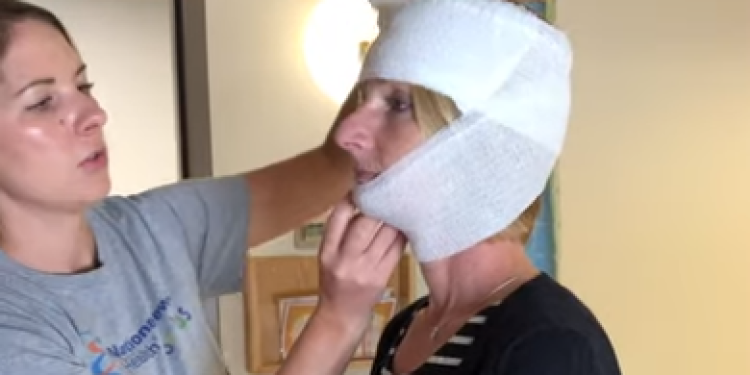Important Information On Using This Service
- Ergsy carefully checks the information in the videos we provide here.
- Videos shown by YouTube after a video has completed have NOT been reviewed by ERGSY.
- To view, click the arrow in the center of the video.
Using Subtitles and Closed Captions
- Most of the videos you find here will have subtitles and/or closed captions available.
- You may need to turn these on and choose your preferred language.
Turn Captions On or Off
- Go to the video you'd like to watch.
- If closed captions (CC) are available, settings will be visible on the bottom right of the video player.
- To turn on captions, click settings.
- To turn off captions, click settings again.
Find A Professional
More Items From Ergsy search
-

What is eczema? General Information
Relevance: 100%
-

Factors that trigger eczema in your child
Relevance: 68%
-

Eczema - Your child's appointment | Dermatology | Paediatrics
Relevance: 68%
-

Managing and treating your child's eczema
Relevance: 43%
-
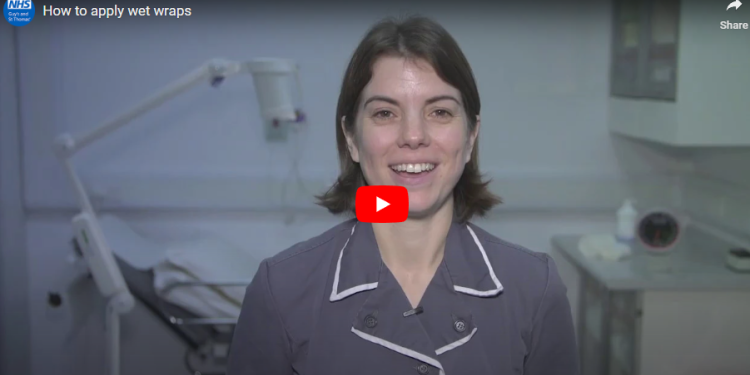
How to apply wet wraps
Relevance: 19%
-
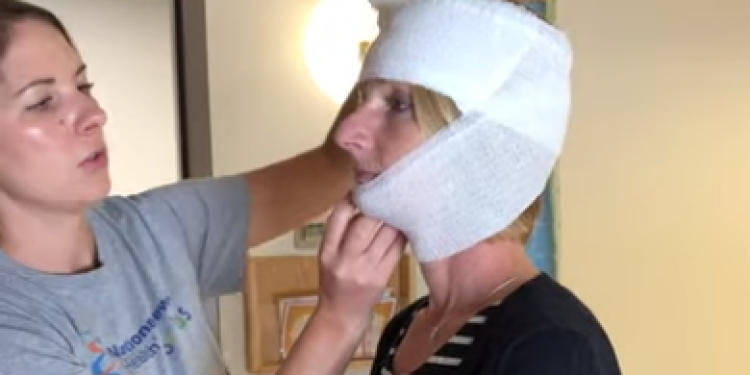
How to apply wet wrap bandaging to the head and face area.
Relevance: 18%
-

Steroid cream see Topical corticosteroids
Relevance: 4%
-

How to use topical steroids
Relevance: 3%
-

Is nettle rash contagious?
Relevance: 3%
-

What are some common conditions treated with homeopathy?
Relevance: 3%
-

What is nettle rash?
Relevance: 2%
-

What are common symptoms of nettle rash?
Relevance: 1%
-
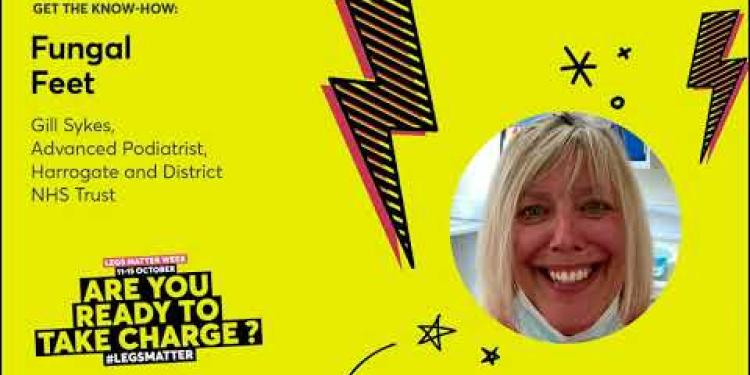
Podiatrist Fungal feet - fungal infection of skin and nails and how to prevent fungal infection in feet
Relevance: 1%
-

Does stress contribute to nettle rash?
Relevance: 1%
-

How is nettle rash diagnosed?
Relevance: 1%
-
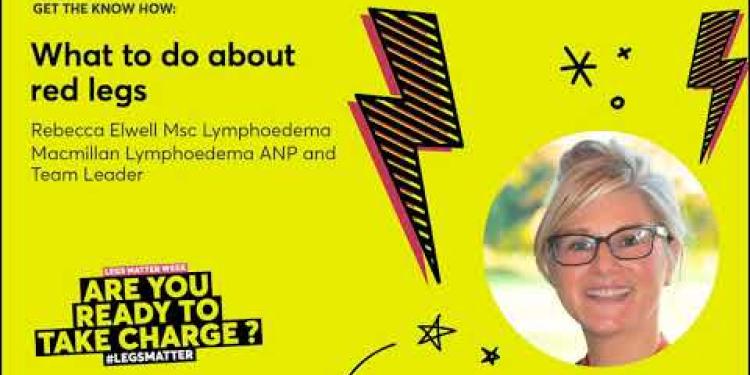
What to do about red legs
Relevance: 1%
-

Minor ailment scheme - Impetigo
Relevance: 1%
How an appointment with an NHS Eczema Specialist works.
An NHS appointment with an eczema specialist is a crucial step in managing and addressing the challenges associated with this chronic skin condition. The National Health Service (NHS) in the UK offers comprehensive care for individuals dealing with eczema, ensuring that they receive proper diagnosis, treatment, and ongoing support. Here's a detailed overview of how an NHS appointment with an eczema specialist typically works:
- Referral: The process often begins with a referral from a general practitioner (GP) or another healthcare professional. If you've been struggling with persistent or severe eczema, your GP may refer you to a specialist to ensure you receive more specialized care.
- Appointment Scheduling: Once the referral is made, you will receive notification of your appointment. NHS appointments are typically scheduled based on the urgency and severity of the condition, with more urgent cases receiving priority.
- Specialist Consultation: During the appointment with the eczema specialist, you can expect a thorough examination and assessment of your skin condition. The specialist will inquire about your medical history, previous treatments, and any specific triggers or patterns related to your eczema.
- Diagnosis and Treatment Plan: The eczema specialist will work towards an accurate diagnosis, determining the type and severity of your eczema. Based on this assessment, they will develop a personalized treatment plan tailored to your needs. This may include prescription medications, topical ointments, and lifestyle recommendations.
- Education and Guidance: The specialist will provide valuable information about eczema management, offering guidance on skincare routines, trigger avoidance, and lifestyle modifications. Education is a crucial aspect of managing eczema, empowering patients with the knowledge to take control of their condition.
- Follow-Up Appointments: Depending on the severity of your eczema, the specialist may schedule follow-up appointments to monitor your progress and make any necessary adjustments to the treatment plan. Regular follow-ups ensure that your condition is consistently managed and that any emerging issues are addressed promptly.
- Collaboration with Other Healthcare Professionals: In some cases, eczema management may require collaboration with other healthcare professionals, such as allergists or immunologists. The eczema specialist may coordinate with these specialists to provide comprehensive care if allergies or immune system factors contribute to your condition.
- Access to Additional Support: The NHS recognizes the importance of holistic care, and your eczema specialist may provide information on additional support services available, such as support groups, counseling, or resources for managing the emotional impact of living with eczema.
Overall, an NHS appointment with an eczema specialist is a collaborative and comprehensive approach to managing this skin condition. It ensures that individuals receive personalized care, education, and ongoing support to effectively manage and improve their eczema symptoms. Open communication with healthcare providers is encouraged to address any concerns, track progress, and adapt the treatment plan as needed.
Eczema - Your Child's Appointment
Eczema, also known as atopic dermatitis, is a common skin condition in children that causes red, itchy, and inflamed skin. This guide will help you understand what to expect during your child's dermatology appointment and provide essential information for managing eczema effectively.
What to Expect at the Dermatologist
Preparing for a dermatology appointment can ensure a productive visit. Initially, the dermatologist will take a comprehensive medical history, including any family history of eczema, asthma, or allergies. Be ready to discuss previous treatments and any known triggers.
The dermatologist will perform a physical examination of your child’s skin. They may also ask questions about daily skincare routines and environmental factors that might affect the eczema. Understanding these aspects can help tailor a treatment plan specific to your child's needs.
Treatment Options
There are several treatment options available to manage eczema effectively. Your dermatologist might recommend the following:
- Emollients: These moisturising treatments help keep the skin hydrated. They should be applied frequently to prevent dryness.
- Topical Steroids: Used to reduce inflammation and itching during flare-ups. Prescription strength will depend on the severity of the eczema.
- Antihistamines: These may be prescribed to reduce itching, especially if it interferes with your child's sleep.
- Wet Wrap Therapy: Applying wet bandages over emollients or steroids can help hydrate and soothe the skin.
Managing Eczema at Home
Effective at-home management can significantly reduce eczema flare-ups. Follow these tips:
- Daily Moisturising: Apply emollients regularly, even when the skin appears clear, to maintain hydration.
- Avoid Triggers: Identify and avoid environmental triggers such as pollen, pet dander, and certain foods.
- Skin-Friendly Clothing: Dress your child in soft, breathable fabrics like cotton to reduce skin irritation.
- Bathing Practices: Use lukewarm water and mild, fragrance-free cleansers. Pat the skin dry gently and apply moisturiser immediately after bathing.
Follow-up and Monitoring
Regular follow-up appointments are crucial to monitor your child’s progress and adjust treatment as needed. Keep a diary of flare-ups, treatments used, and any side effects observed. This information aids the dermatologist in making any necessary changes to the treatment plan.
Remember that managing eczema is a continuous process. Collaboration with your dermatologist and consistency in at-home care can greatly improve your child's skin health and quality of life.
How a visit to an NHS Eczema Specialist works
Seeing an NHS eczema specialist is important for helping with eczema. Eczema is a skin problem that doesn't go away. The National Health Service (NHS) in the UK helps people with eczema. They make sure you get the right help and support. Here is how it usually goes:
- Getting a Referral: It starts when your regular doctor (GP) thinks you need more help. If your eczema is bad or won't go away, they may send you to a specialist who knows a lot about eczema.
- Setting the Appointment: After your doctor refers you, you will get a letter or call with the appointment details. The NHS decides when you need to see the specialist based on how bad your eczema is. If it is serious, you will see the specialist sooner.
- Meeting the Specialist: At the appointment, the eczema specialist will look at your skin carefully. They will ask you questions about your health history and how eczema affects you. They may ask what makes it better or worse.
- Making a Treatment Plan: The specialist will find out what type of eczema you have. They will make a treatment plan just for you. This might include medicine, creams, and tips for your daily life.
- Learning and Advice: The specialist will teach you about eczema and how to take care of your skin. They will give advice on things like what to avoid and how to make eczema better. Learning about eczema helps you manage it better.
- Check-Up Visits: You might need more appointments to see how your eczema is doing. The specialist will check if the treatment is working and make changes if needed. Regular visits help keep your eczema under control.
- Working as a Team: Sometimes, the specialist will work with other experts, like allergy doctors. This team helps manage eczema, especially if allergies are part of the problem.
- Extra Help: The NHS knows that living with eczema is hard. The specialist can tell you about support groups and other services like counseling. These can help you feel better emotionally.
Seeing an NHS eczema specialist helps manage eczema well. You get care and advice just for you. It's important to talk to your healthcare providers about how things are going. They will help change the treatment if needed to make sure it works well for you.
Eczema - Your Child's Appointment
Eczema is a skin problem. It makes your child's skin red, itchy, and sore. This guide will help you know what will happen when you see the skin doctor. It will also give you tips on how to take care of eczema.
What to Expect at the Dermatologist
Getting ready for the skin doctor visit can make it better. First, the doctor will ask about your child's health and if others in your family have eczema, asthma, or allergies. Get ready to talk about past treatments and things that make the eczema worse.
The doctor will look at your child's skin. They might ask about your child's daily skin care and things around them that might affect their eczema. Knowing this will help make a special plan just for your child.
Treatment Options
There are different ways to help eczema. The skin doctor might say to try these:
- Emollients: These are creams to keep the skin moist. Use them often to stop dryness.
- Topical Steroids: These creams help with swelling and itching when eczema is bad. The doctor will choose the right strength based on how bad the eczema is.
- Antihistamines: These are given to stop itching, especially if your child can't sleep because of it.
- Wet Wrap Therapy: Put wet bandages over the cream or steroid to keep the skin moist and calm.
Managing Eczema at Home
You can do a lot at home to help eczema. Try these tips:
- Daily Moisturising: Use creams every day, even when the skin looks okay, to keep it moist.
- Avoid Triggers: Find out what makes the eczema worse, like pollen, pet hair, and some foods, and try to stay away from them.
- Skin-Friendly Clothing: Dress your child in soft clothes, like cotton, to stop skin rubbing.
- Bathing Practices: Use warm water, not hot, and mild soap with no smell. Gently pat the skin dry, then put on moisturiser right away.
Follow-up and Monitoring
Keep seeing the skin doctor to check how your child is doing. Write down when the eczema gets worse, what treatments you try, and any side effects. This helps the doctor make changes if needed.
Remember, taking care of eczema is something you do all the time. Working with your skin doctor and doing the right things at home can make your child's skin feel much better.
Frequently Asked Questions
What is eczema?
Eczema, also known as atopic dermatitis, is a chronic skin condition that causes inflamed, itchy, and red skin.
How common is eczema in children?
Eczema is quite common, affecting about one in five children in the UK.
What are the symptoms of eczema?
Symptoms of eczema include dry, itchy skin, red or brown patches, thickened or scaly skin, and small raised bumps that may leak fluid.
What triggers eczema flare-ups?
Common triggers include allergens, irritants, cold weather, stress, and infections.
How is eczema diagnosed?
Eczema is usually diagnosed through a physical examination and a review of the child’s medical history. Sometimes, a dermatologist may conduct tests to rule out other conditions.
Can eczema be cured?
There is currently no cure for eczema, but it can be managed with treatment and by avoiding triggers.
What treatments are available for eczema?
Treatments include moisturisers (emollients), topical corticosteroids, and other prescription medications. In some cases, phototherapy may be recommended.
How often should I apply moisturiser to my child’s skin?
Moisturisers should be applied at least twice daily, and more often if needed, to keep the skin hydrated.
Are there any lifestyle changes that can help manage eczema?
Yes, keeping your child's skin moisturised, avoiding known triggers, using mild soap substitutes, and maintaining a cool, well-ventilated home can help manage eczema.
Can diet affect eczema?
Diet can sometimes affect eczema, especially if the child has food allergies. It is important to discuss any dietary concerns with a healthcare professional.
Should my child avoid swimming if they have eczema?
Swimming can be beneficial, but it’s important to rinse off chlorine and apply moisturiser afterwards. Always consult with your child’s doctor.
Are there specific fabrics my child should avoid wearing?
Yes, it’s best to avoid wool and synthetic fabrics that can irritate the skin. Soft, breathable fabrics like cotton are usually recommended.
How can I stop my child from scratching their eczema?
Keeping nails short, using anti-scratch mittens, and applying moisturiser and cool compresses can help reduce itching and scratching.
Can eczema affect my child’s sleep?
Yes, the itchiness and discomfort from eczema can disrupt sleep. A consistent bedtime routine and managing eczema symptoms can help improve sleep quality.
When should I seek medical advice for my child’s eczema?
You should seek medical advice if your child’s eczema does not improve with over-the-counter treatments, if it worsens, or if there are signs of infection, such as increased redness, pus, or fever.
What is eczema?
Eczema is a skin problem. It makes your skin red, dry, and itchy. It can happen to anyone, even kids.
Here are some ways to help:
- Use cream or lotion to keep your skin soft.
- Try not to scratch your skin.
- Wear clothes that are soft, like cotton.
- A doctor can give you special cream to help.
Eczema is a skin problem. It is also called atopic dermatitis. It makes your skin red, itchy, and sore.
How many children have eczema?
Eczema is a skin condition. It is common. It happens to about one out of five children in the UK.
What happens when you have eczema?
Eczema makes your skin itchy and red. It can make your skin dry and sometimes there are red bumps.
Here is how you can help:
- Use gentle soap when you wash.
- Put on moisturizer to keep skin soft.
- Wear soft clothes like cotton.
Ask an adult if you need more help!
When you have eczema, your skin might be dry and itchy. You could see red or brown spots. Your skin might feel thick or look scaly. You might also get little bumps that can leak liquid.
What makes eczema worse?
Things that can make it happen are:
- Dust and pollen (tiny things in the air)
- Strong smells or smoke
- Cold weather
- Feeling worried or upset
- Getting sick
Using pictures or a story can help understand better.
How do doctors know if you have eczema?
Doctors look at your skin to see if you have red, itchy, or dry patches.
They might ask questions about your family and if anyone else has skin problems or allergies.
Sometimes, they might need to do a little test on your skin to be sure.
If you want help understanding, you can ask someone you trust to explain.
Eczema is when the skin gets itchy and red. Doctors find out if someone has eczema by looking at their skin and asking about their health. Sometimes, a skin doctor might do some tests to make sure it is eczema and not something else.
Can eczema go away completely?
There is no cure for eczema right now. But you can feel better with medicine and by staying away from things that make it worse.
What can help with eczema?
Eczema can make your skin itchy and red. Here are some things that can help:
- Moisturizing: Use creams to keep your skin soft.
- Medicine Creams: Doctors might give you special creams to help stop itching.
- Avoid Triggers: Stay away from things that make your eczema worse, like certain soaps or fabrics.
- Bath Time: Take short, warm baths and use gentle soap.
- Support: Talk to a doctor or nurse for more help.
You can also ask someone to help you read the information or use apps that read text out loud.
Treatments for skin problems include special creams to keep your skin soft, medicines that you put on your skin, and other medicines you get from a doctor. Sometimes, a doctor might use a special light to help your skin get better.
How many times should I put cream on my child’s skin?
It is good to put cream on your child’s skin every day. You can do it once in the morning and once at night. This helps keep their skin soft and happy.
Using cream after a bath is also a good idea. The skin is clean and can soak up the cream well.
If your child has dry skin, use cream more often.
Talking to a doctor can help you know what is best for your child.
Put on moisturiser on your skin at least two times every day. You can use it more if your skin feels dry. This keeps your skin nice and moist.
Can changing how I live help with eczema?
Yes, you can help with your child's eczema by keeping their skin soft and moist. Stay away from things that make it worse. Use gentle soap that is easy on the skin. Keep your home cool with fresh air.
If your child needs extra help, you can try some tools and techniques:
- Use a special cream to keep the skin soft.
- Use soap that is gentle and doesn't hurt the skin.
- Keep the room cool and let fresh air in.
Can what you eat change eczema?
What you eat can sometimes make eczema worse. This is true if you have allergies to some foods. Always talk to a doctor or nurse if you are worried about food and eczema.
Here are some things that might help:
- Keep a food diary. Write down what you eat and when you get itchy.
- Try different foods one at a time to see if they make you itchy.
- Ask someone you trust to help you understand what foods might be good or bad for your eczema.
Can my child go swimming if they have eczema?
If your child has eczema, you might wonder if they can swim. Eczema is a skin condition that can make the skin itchy and red. Here is some information that might help:
- It is usually okay for kids with eczema to swim.
- Swimming can sometimes help the skin feel better.
- After swimming, rinse off with clean water.
- Put on moisturizer to keep the skin soft.
- Talk to your doctor for advice specific to your child.
Here are some tips to make swimming easier:
- Use a swim cap to cover the head if needed.
- Wear a wetsuit or swim shirt for extra protection.
- Try different types of swimming pools to see which feels best for your child's skin.
Always have a chat with your doctor if you are unsure.
Swimming is good for you, but make sure to wash off the pool water after. Put on lotion to keep your skin soft. Always talk to your child's doctor if you have questions.
What clothes should my child not wear?
Yes, it is good to stay away from wool and fake fabrics. These can bother your skin. Soft and airy fabrics like cotton are usually better.
How can I help my child stop scratching their eczema?
Eczema can make your child's skin very itchy. Here are some simple ways to help:
- Keep skin cool: Make sure they wear loose, soft clothes.
- Use moisturizer: Put cream on their skin every day.
- Keep nails short: Trim their nails so they can't scratch too hard.
- Distractions: Keep your child busy with toys or activities.
- Cold cloth: Put a cool, wet cloth on the itchy spot.
If you need help, talk to a doctor about other treatments.
Here are some ways to stop itching and scratching:
- Keep your nails short.
- Wear special gloves called anti-scratch mittens.
- Rub on moisturiser to keep skin soft.
- Put something cool, like a damp cloth, on itchy spots.
Can eczema make it hard for my child to sleep?
Yes, eczema can make your skin itchy and uncomfortable. This can make it hard to sleep. Having a regular bedtime routine and taking care of your skin can help you get better sleep.
When should I ask a doctor about my child's eczema?
Talk to a doctor if your child's eczema doesn’t get better with medicine you buy at the store, if it gets worse, or if you see signs of infection like more redness, pus, or a fever.
Useful Links
Useful links from: What is eczema? General Information
- NHS - Overview of Eczema Provides a comprehensive overview of atopic eczema, including symptoms, causes, diagnosis, treatment, and living with the condition.
- National Eczema Society (UK) The National Eczema Society is a UK charity dedicated to improving the quality of life for people with eczema and their families, providing support, information, and raising awareness.
- Eczema Outreach Support (EOS) Eczema Outreach Support provides practical and emotional support for families of children with eczema in the UK, offering tailored resources and community connections.
- Allergy UK - Eczema Allergy UK offers detailed information about eczema, including triggers, management strategies, and additional support resources for people living with eczema.
Useful links from: Managing and treating your child's eczema
- NHS - Eczema (Atopic Dermatitis) in Children Comprehensive guide by the NHS on understanding, managing, and treating eczema in children. Includes symptoms, causes, diagnosis, and treatment options.
- Eczema Outreach Support (EOS) A UK-based charity supporting families dealing with eczema. Provides resources, emotional support, and practical advice on managing childhood eczema.
- National Eczema Society The National Eczema Society offers expert information on treating and managing eczema in children. Includes advice on treatments, skincare routines, and accessing support services.
- Great Ormond Street Hospital - Eczema Parent Information Information from Great Ormond Street Hospital on eczema, including treatment options, how to manage flare-ups, and support for families. Provides detailed guides and patient stories.
Useful links from: How to apply wet wraps
- NHS - How to Apply Wet Wraps The NHS provides a comprehensive guide on treating atopic eczema, including how to apply wet wraps for children and adults. This resource outlines step-by-step instructions and includes information on managing eczema effectively.
- National Eczema Society - Wet Wraps The National Eczema Society offers detailed advice on using dressings and bandages, including wet wrapping techniques, which are important for managing severe eczema. This UK-based charity provides practical support and information for people with eczema.
- Allergy UK - Eczema Management Allergy UK provides information on managing eczema, including the use of wet wraps as part of an overall treatment plan. As a leading UK charity for people with allergies, they offer resources and support for those dealing with eczema.
Useful links from: Factors that trigger eczema in your child
- NHS - Atopic Eczema (Atopic Dermatitis) Comprehensive guide on atopic eczema including symptoms, triggers, treatments, and tips for managing it in children.
- National Eczema Society - Understanding Eczema Detailed information about eczema, factors that can trigger flare-ups in children, and advice on managing the condition.
- Allergy UK - Eczema in Children Insights from Allergy UK on different types of eczema, common triggers, and how to handle flare-ups specifically in children.
- British Skin Foundation - Eczema Supportive resource focusing on the causes of eczema, the impact on children, and strategies for managing the condition effectively.
Useful links from: How to apply wet wrap bandaging to the head and face area.
- NHS: Wet wrap therapy The NHS page on atopic eczema includes a section on wet wrap therapy that provides guidance on how to properly apply wet wraps, including the head and face area.
- National Eczema Society: Wet Wraps The National Eczema Society offers detailed information and advice on how to use wet wraps and other treatments for eczema, with specific instructions and precautions.
- Changing Faces UK: Skin Camouflage Changing Faces is a UK-based charity that provides support for people with visible differences. The site includes resources on skin camouflage, which can be useful for covering areas affected by wet wrap bandaging.
- Eczema Outreach Support: Resources Eczema Outreach Support offers various resources for families dealing with eczema, including practical guides and tips for treatments such as wet wrap therapy.
Have you found an error, or do you have a link or some information you would like to share? Please let us know using the form below.
- Ergsy carfully checks the information in the videos we provide here.
- Videos shown by Youtube after a video has completed, have NOT been reviewed by ERGSY.
- To view, click the arrow in centre of video.
- Most of the videos you find here will have subtitles and/or closed captions available.
- You may need to turn these on, and choose your preferred language.
- Go to the video you'd like to watch.
- If closed captions (CC) are available, settings will be visible on the bottom right of the video player.
- To turn on Captions, click settings .
- To turn off Captions, click settings again.

